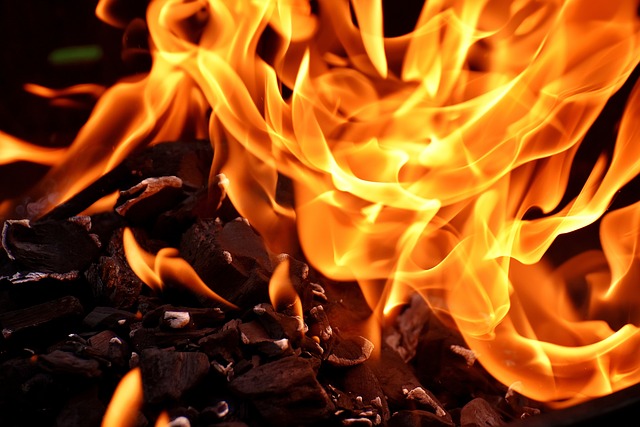In Illinois, particularly when selling fire-damaged homes in Chicago, fire insurance claims are critical for homeowners recovering from fires. Policies cover rebuilding/repairing structures and replacing personal belongings, with settlement amounts based on loss extent. Navigating claims involves reviewing policies, documenting damage through photos, keeping records of expenses, and accurately assessing property values with professional help. Understanding the process, building code guidelines, buyer hesitation, and communication rights is vital for successful insurance claims and favorable sale outcomes for fire-damaged properties in Chicago, including strategic assessment, photo documentation, and open disclosure of defects to potential buyers.
In Illinois, fire insurance claims play a pivotal role in helping homeowners recover from devastating losses. Understanding your coverage and navigating the claims process is essential for Chicago residents facing fire damage. This guide delves into crucial aspects, including understanding fire insurance policies, documenting and estimating damages, and addressing common challenges specific to Chicago homeowners. Additionally, it offers valuable tips for those looking to sell fire-damaged homes in Chicago, ensuring a smoother transition during this challenging time.
- Understanding Fire Insurance Coverage in Illinois
- The Process of Filing a Fire Damage Claim
- Documenting and Estimating Fire Damages
- Common Challenges in Chicago Homeowners' Claims
- Navigating the Claims Adjustment Process
- Selling Fire-Damaged Homes: Tips and Considerations for Chicago Sellers
Understanding Fire Insurance Coverage in Illinois

In Illinois, fire insurance claims play a crucial role in helping homeowners navigate the aftermath of a devastating fire. Understanding your fire insurance coverage is essential when dealing with selling fire-damaged homes in Chicago. Policies typically cover the cost of rebuilding or repairing structures, as well as replacing personal belongings lost in the fire. Homeowners should review their policy documents carefully to know exactly what is covered and what expenses are eligible for reimbursement.
When a home in Chicago sustains fire damage, insurance companies assess the extent of the loss and determine the appropriate settlement amount. This process involves evaluating both structural damages and the replacement value of personal property. Selling fire-damaged homes in this context requires transparency between homeowners and insurance providers to ensure fair compensation. Homeowners should document all repairs, replacements, and expenses related to the fire to support their insurance claims effectively.
The Process of Filing a Fire Damage Claim

After a fire, navigating the process of filing a claim can seem daunting, but understanding the steps involved can help streamline the journey. In Illinois, including Chicago, homeowners affected by a fire should first assess their policy coverage. Fire insurance policies typically cover the cost of repairing or rebuilding damaged property, as well as replacing personal belongings. It’s crucial to review the policy documentation to understand the scope of coverage and deductibles.
Next, document all damage to both the structure and its contents through photographs and itemized lists. This step is essential when selling fire-damaged homes Chicago, as potential buyers will want to see evidence of the extent of the damage and subsequent repairs. Collect all necessary information, including policy numbers, contact details of the insurance company, and a detailed inventory of damaged or lost items. Then, submit a claim application to your insurer, providing a thorough description of the incident and its impact on your property.
Documenting and Estimating Fire Damages

After a fire, documenting and estimating damages is crucial for fire insurance claims in Illinois. Homeowners in Chicago should start by taking detailed photos of the affected areas, noting any structural damage, smoke or water stains, and personal belongings that sustained damage. Keep records of all expenses related to temporary housing, cleaning supplies, and repairs, as these will be essential for supporting your claim.
Next, assess the value of your property and belongings accurately. When selling fire-damaged homes Chicago, it’s important to consult with professionals who can provide an unbiased estimate of the pre-and post-fire values. This includes real estate agents and appraisers familiar with the local market. By providing precise documentation and estimates, homeowners ensure a smoother claims process and receive fair compensation for their losses.
Common Challenges in Chicago Homeowners' Claims

Chicago homeowners often face unique challenges when filing fire insurance claims, especially with the city’s bustling landscape and diverse real estate market. One significant hurdle is navigating the complex process, particularly for those unfamiliar with local regulations and requirements. The city’s strict building codes and guidelines for selling fire-damaged homes in Chicago can be intricate, causing delays and frustrations for policyholders.
Additionally, the competitive real estate market in Chicago may impact a homeowner’s ability to sell their fire-damaged property at a fair price. While some buyers are drawn to the potential for renovation projects, others may shy away from properties with significant damage, leading to a slower sales process and potentially lower offers. Understanding these challenges is crucial for homeowners looking to navigate the insurance claims process effectively and secure a favorable outcome in the selling of their fire-damaged homes in Chicago.
Navigating the Claims Adjustment Process

Navigating the claims adjustment process after a fire can be challenging, but understanding the steps involved can help ease the stress. In Illinois, including Chicago, insurance companies employ adjusters to assess and determine the value of damaged or destroyed properties. These professionals will inspect your fire-damaged home, documenting every aspect to calculate the cost of repairs or replacement. They work with policyholders to gather necessary information, discuss coverage details, and provide a preliminary estimate for the claim.
During this process, selling fire damaged homes in Chicago might be considered as an option, especially if the damage is extensive. Adjusters can guide homeowners on potential alternatives, including reconstruction or, in some cases, insurance companies may offer a cash settlement. Effective communication is key; policyholders should ask questions, clarify terms, and ensure they understand their rights throughout the claims adjustment journey.
Selling Fire-Damaged Homes: Tips and Considerations for Chicago Sellers

Selling a fire-damaged home in Chicago can be a challenging process, but with the right approach and knowledge, it’s entirely possible to navigate this situation successfully. The first step for Chicago sellers is to assess the extent of damage caused by the fire. Documenting and photographing the affected areas thoroughly will help when presenting your case to insurance companies and potential buyers. It’s crucial to be realistic about repairs needed; major structural issues or extensive water damage might require professional estimates.
Consideration should also be given to disclosure. In Illinois, sellers are legally obligated to disclose known material defects. While it may seem tempting to withhold information, transparency builds trust with buyers. Presenting a detailed report on the fire’s impact and any necessary repairs can make your property more appealing to discerning buyers who understand that these situations require careful handling.
In Illinois, navigating fire insurance claims requires a thorough understanding of coverage options and the adjustment process. From documenting damage to navigating challenges specific to Chicago homeowners, this guide equips you with knowledge to successfully manage your claim. For those looking to sell fire-damaged homes in Chicago, exploring tips and considerations is crucial for a smooth transition. By familiarizing yourself with these aspects, you can ensure a more efficient recovery process and make informed decisions regarding your property.






